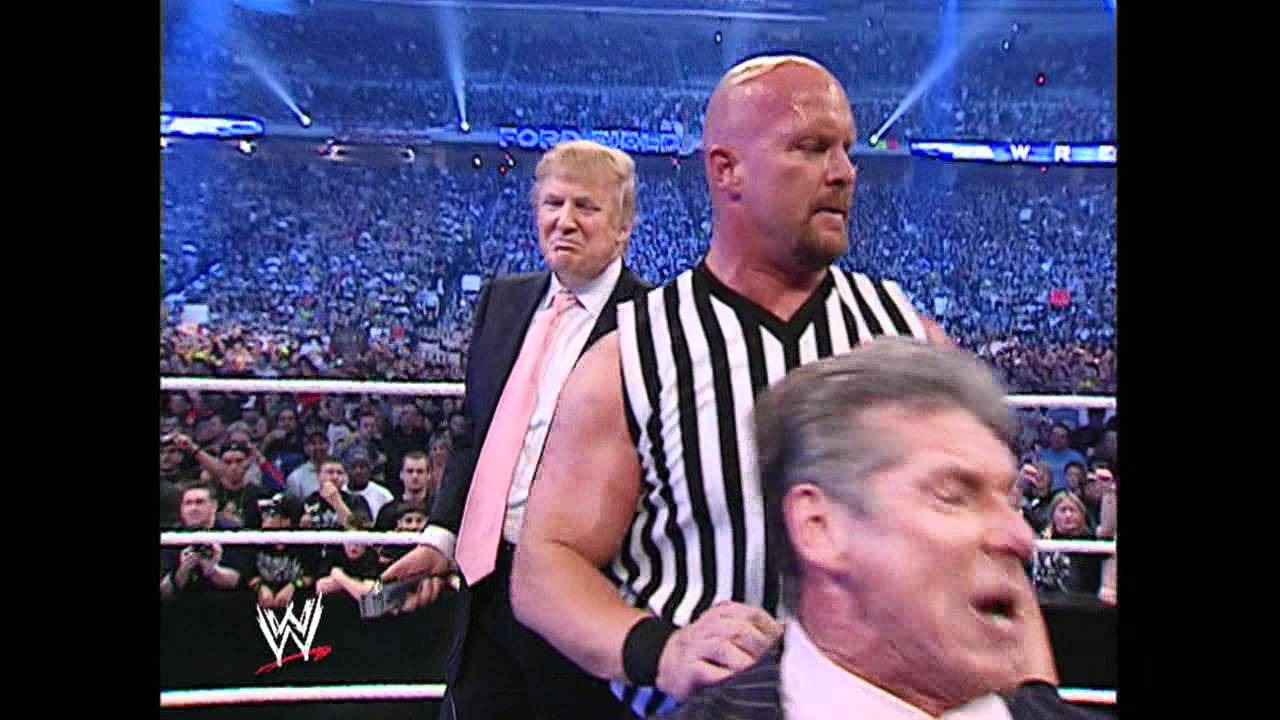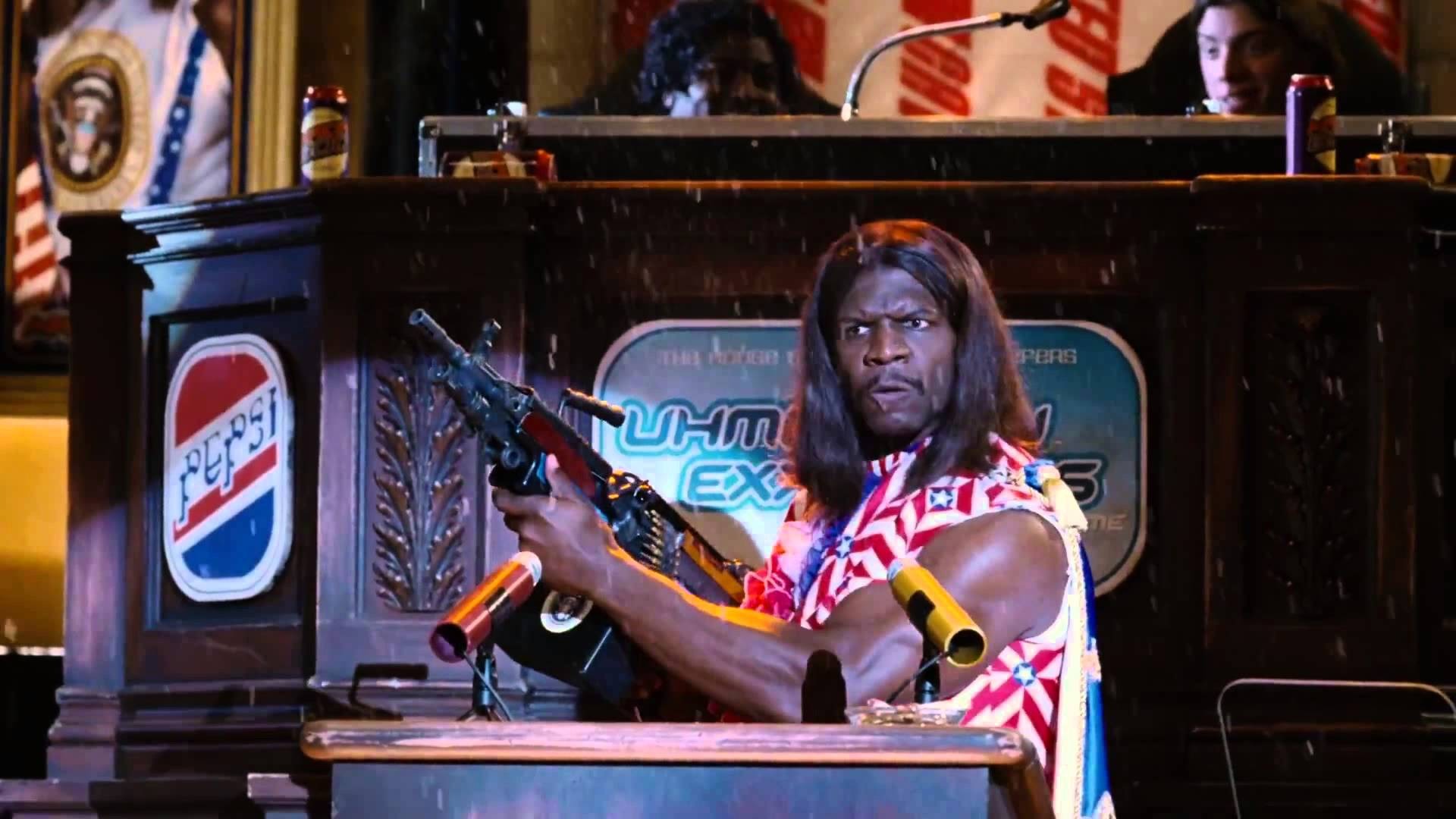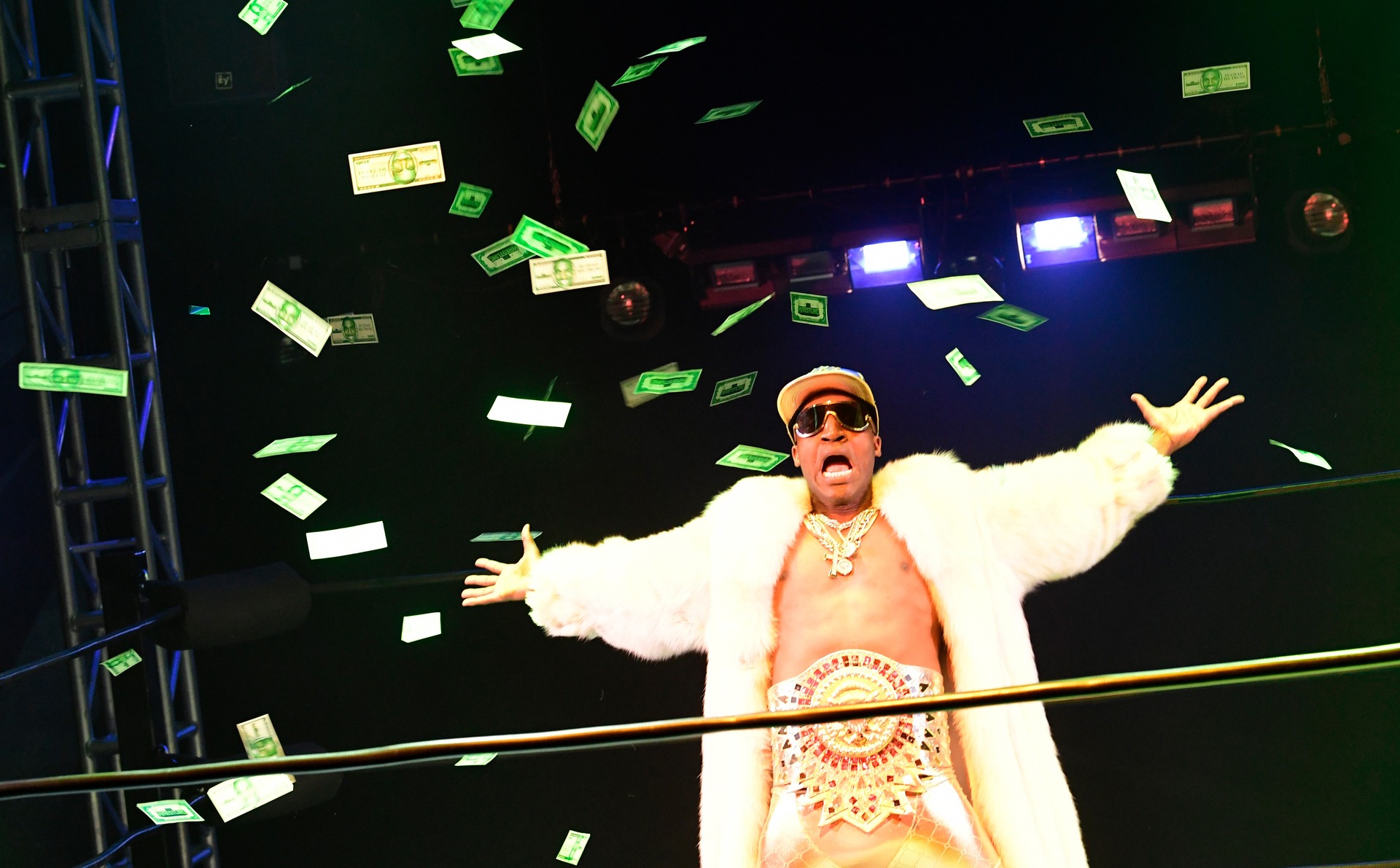President Trump just set the internet on fire again by bashing immigrants from “shithole” countries Haiti, El Salvador, and in Africa.
He’s been using these kinds of racist comments and stereotypes since he launched his campaign by labeling Mexicans rapists and drug dealers. But Trump didn’t start there. Years ago, the president learned to play the working-class champion versus bigoted caricatures of non-white and new Americans from the world of pro wrestling – the arena depicted in The Elaborate Entrance of Chad Deity.
Author Kristoffer Diaz’s Pulitzer Prize nominated satire premiered in 2009, well before Trump dominated the political arena. But Trump has embraced wrestling since the late 80’s. The connection is one of many ways that Diaz’s play is so eerily relevant to the present. Miami New Drama presents the Obie Award winning comedy in partnership with Sarasota’s Asolo Rep Jan. 25 to Feb. 18 at the Colony Theatre.
The Trump-wrestling link shows up in Michael Wolff’s incendiary new tell-all Fire and Fury. “A pro wrestling fan who became a World Wrestling Entertainment supporter and personality (inducted into the WWE Hall of Fame), Trump lived, like Hulk Hogan, as a real-life fictional character,” Wolff writes in Chapter Two.
Take last summer’s infamous “wrestling CNN” tweet, when Trump sent out a GIF of himself slamming a man with a CNN logo imposed over his face amidst a screaming wrestling match. The image would have been familiar to the president’s base. It was the climax of an elaborate 2007 stunt called the Battle of the Billionaires at Wrestlemania 23, the mammoth live and pay-per-view show that’s the biggest event of the WWE circuit.
Trump had been buddies with WWE CEO Vince McMahon (the model for EKO, the manipulative boss of Chad Deity) since hosting a pair of early Wrestlemanias at Trump Plaza in Atlantic City in 1988 and 1989. The Battle of the Billionaires was pure wrestling theatrics, with McMahon playing an arrogant power-mad CEO versus Trump the tough populist champion. (As part of the build-up to the match, Trump rained down thousands in cash – McMahon’s money, of course – on a WWE audience.)

(Trump, Stone Cold Steve Austin, and Vince McMahon during the Battle of the Billionaires)
The two friends each had fighter surrogates for the final ‘battle.’ Trump’s winning wrestler, ironically, was Bobby Lashley, who, like Diaz’s champion title character Chad Deity, is African-American. The “referee” was Stone Cold Steve Austin, a major WWE star. The loser would have his head shaved in the ring on live TV; McMahon was also famous for his flamboyant coif. The ‘wrestling CNN’ GIF comes from the moment when Lashley won, and a triumphant, fist-pumping Trump tackled McMahon. (Trump went on to make Linda McMahon, the wife of his supposed “rival” and co-founder of the WWE, part of his cabinet – she’s head of the Small Business Administration.)
(Another eerily predictive political-wrestling-reality fantasy is the 2006 cult hit Idiocracy, a bizarre sci-fi comedy set in an anti-intellectual dystopian future, where the president is a former wrestling and porn star. In 2016 director Mike Judge told Time Magazine he was stunned by how his film seemed to be coming true.)

(President Camacho in a scene from the 2006 film Idiocracy)
The Trump-WWE link hasn’t become a dominant backstory the way Trump’s reality show/bossman fame on The Apprentice has. But CNN and other outlets reported the origins of the ‘Wrestling CNN’ GIF at the time, and a number of writers have explored the connection.
“Pro wrestling’s biggest stage was where Donald Trump the political populist was born,” Stephen L. Miller wrote in the National Review in the spring of 2016, in the heat of the campaign. Miller (an anti-Trump blogger, not the presidential advisor), argued that the Battle of the Billionaires showed Trump he could thrill audiences by playing a belligerent, fist-pumping champion taunting opponents like “Little Marco” and “Lyin Ted Cruz” at campaign rallies where he urged followers to attack protestors.
“Once he entered the ring, the persona of Trump the showman took over — and it’s this persona that presents itself in politics today, enthralling riled-up crowds ready for a fight,” Miller wrote.
And since the WWE’s audience knows the characters, and the contests, are fake, why should they care if their new political idol plays loose with the facts?

(Garrett Turner as the title character in The Elaborate Entrance of Chad Deity.
Photo by Cliff Roles.)
Much of Chad Deity was inspired by the bigoted stereotyping in pro wrestling that Trump has used so effectively. The central character, Macedonio “Mace” Guerra, who loves the sport despite being paid to lose, has similarities to Diaz, who grew up in New York watching the WWE with his family, and was based on a Mexican-American wrestler named Chavo Guerrero. The Indian American kid whom EKO turns into the terrorist caricature The Fundamentalist, was prompted by a 2004 WWE villain called Muhammad Hassan, whose role was to get slammed by all-American types like Hulk Hogan.
And Chad Deity’s portrayal of how wrestling’s wildly exaggerated characters can take over the real person, and reality, has become all too familiar under this president.
“Trump often spoke of himself in the third person,” Wolff continues on the president’s wrestling connections in Fire and Fury. “Trump did this. The Trumpster did that. So powerful was this persona, or role, that he seemed reluctant, or unable, to give it up in favor of being president—or presidential.”
